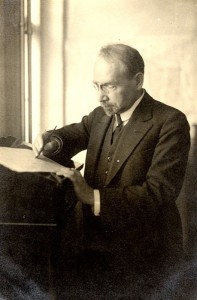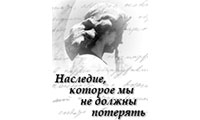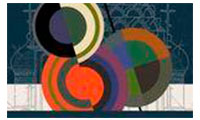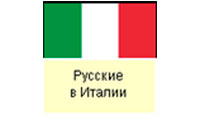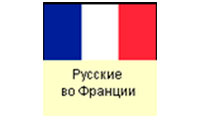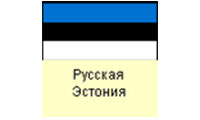The stateless People of Latvia in their
own Words
Twenty years have passed since the end of the Cold
war. Fifteen years have passed since the USSR dissolved giving rise to
either new or restored independent states. The years that followed contained a
lot of both happy and tragic events, but the general outcome is not in doubt -
the end of the Cold War opened the way for the reunification of Europe based on the common values of freedom, democracy
and human rights.
The end of each war in history usually results in the
redistribution of territory, property and punishment of the vanquished. The
side defeated in the Cold war is more or less evident. But still the discussion
continues on who personally is guilty for the policy of communist governments
and how they should be punished. This discussion is not only encouraged by some
politicians, but is the aspiration of a substantial part of society. The
politicians respond to this by saying how Russia
must apologise for the crimes of communism and
compensate the losses and moral sufferings of the peoples of Eastern
Europe. But Russia
is too important for the West to become a scapegoat in the present situation. Some people think the
former communist leaders should be punished depending on their level of
personal guilt. But a long time has passed and the old generation of communists
who were most closely engaged in the repressions has left the political stage.
The new generation of European communists participated in democratic reforms
and has become an integral part of the modern political system. So, who would
be punished for the crimes of the past?
Some nations found a local solution. The
most radical of them was invented in the Baltic countries of Latvia and Estonia - the states punished their
local Russian-speaking minorities. An MEP Rihards Piks (EPP-ED), asked by a
journalist whether Latvians should forgive Russian-speakers for the mistakes
committed by the USSR,
replied, “the Bible says, children must
pay for the sins of their parents”.[1]
After the restoration of independence sixteen years ago, all permanent
residents of Latvia and Estonia who were not descendants of citizens of the
first period of independence (1918-1940), were deprived of political and some social
rights. One third of the population of Latvia found themselves in the
artificial status of “Latvian non-citizens”. This status means that a
non-citizen doesn’t have citizenship of any country but at the same time cannot
claim to be a stateless person. Replying to a Latvian Russian-speaking
journalist who'd asked “What are we now
in Latvia?”, Mr. Visvaldis Lācis, a former officer of the Latvian Waffen
Division of the SS, but currently - publicist and ideological inspirer of
nationalistic Latvian youts, said – “Now
you are nothing”. The Russian-speaking minority of this country became the
last prisoners of the Cold war.
The solution of dividing people into citizens and
“non-citizens” was purely political in nature. From a legal point of view
another way was also possible - the neighbouring country of Lithuania at the moment its
independence was restored adopted the “zero option” granting citizenship rights
to all its residents. The Latvian
invention of non-citizen status provided for the exclusion of the minority from
sharing in power and stabilized majority support for radical liberal reforms
carried out by right wing governments. Due to reform Latvia has become the poorest
country of the European Union, and has the highest rate of depopulation. But
even the poorest Latvians are still voting in favour of right wing parties as a
kind of revenge for communist repression.
Why is the Latvian approach to the local Russian
minority so radical? This attitude is grounded in Latvia's dramatic history. Seven
centuries of foreign domination was interrupted only in the beginning of the
twentieth century when Latvia
gained independence. During the First World War and the first independence
period the share of ethnic minorities dropped from 40% in 1914[2] to 23% in 1935. At that time ethnic
Russians made up one tenth of the population.
In 1940 the country was forcefully annexed by the Soviet Union. Several waves of communist repression as
well as the Second World War caused the loss of more than 300,000 inhabitants. The national resistance against the Soviets
went on until the beginning of 1950s. Then both the repressions and the
resistance drew to a close and the Latvian elite decided that the only way for
the country's development was integration into the Soviet system. Latvia became a loyal republic of the Soviet Union. It had the highest share of scientists,
developed agriculture and modern industry. Industrial development was performed
by attracting labour from Russia
and other territories of the USSR.
Labour migration led to the growth of the Russian-speaking minority which
reached 40% of the population at the end of the Soviet era.
The end of the Cold war which led to national
independence for the Baltic countries also brought up the issue of guilt for
the communist repressions of the 40s and early 50s, as well guilt for the
discomfort caused by changes in ethnic proportions. Who would pay? There were
not a lot of options for revenge for the past. The Soviet totalitarian empire
had disappeared. The new democratic Russia supported the restoration of
the
independent
states and could not become the main enemy at that time. The overwhelming
majority of Latvian communists had moved successfully to liberal and right wing
parties. It was not possible to punish all those who had collaborated with the
Soviets because in this case the majority of the Latvian elite - its
journalists, artists, scientists, managers and lawyers would have had to be punished too. In such
circumstances the local Russian-speaking minority was chosen as a target group
for avenging historic grievances. Those of them, who had arrived in Latvia during Soviet times became stateless,
those Russians who were the descendents of citizens of the first independent
state (up to 25% of the registered citizens of Latvia in 1993) were excluded from
the decision-making process by unwritten laws of ethnic discrimination. The
definition “you are nothing” affected both parts of the Latvian
Russian-speaking community.
What has changed in sixteen years of independence? The
Russian-speaking citizens of Latvia
became more active in politics, but their position is still not taken into
consideration relating to issues of minority education or the use of languages.
The problem of mass scale statelessness is still acute. The number of
non-citizens declined from 700,000 to 400,000. Now they make up no more than
20% of the population. More than a hundred thousand of them became Latvian
citizens; the rest of the “disappeared non-citizens” mostly died due to poor social
conditions or left the country.
The process of naturalisation started only in 1996. At
present non-citizens do not have the right to participate in local elections
(newcomers from EU countries enjoy this right). Non-citizens cannot travel
without a visa within the EU. Restrictions relating to more than sixty
professions are still in force concerning Latvian non-citizens, as well as
discrimination in calculating pensions. After sixteen years of independence, after Latvia joined the EU and NATO it is
still holding 400,000 Cold War prisoners “liberating” them slowly and
reluctantly. The existing rate of naturalisation would only provide a solution
for the problem over a period of 40 years. This means that the majority of
non-citizens of the old generation will never enjoy equal rights with Latvian
citizens. No exception from the rules is made even for the specific group of
former prisoners of Nazi concentration camps, persons forcibly moved to Latvia during
World War II or the refugees of that war, who did not have homes to return to.
Why is the process of dealing with the problem of mass
statelessness so slow? Launching the naturalisation process was not a goodwill
gesture by the Latvian political elite but the result of heavy pressure by the
EU and other foreign powers. The former Prime minister and leader of the “Latvian Way” party
(ALDE) Mr. Ivars Godmanis gave a frank evaluation: “There is the Citizenship law that stipulates the order of
naturalisation. And please don’t say the order is very easy. Why is it that so
many people failed to gain citizenship within 15 years? This means the law is
not so “soft”... At the same time the
law is supported by our Western allies and it is a good tool against Russian
attacks. We can always say the law meets the requirements of universal
standards”.[3]
Latvian citizenship law is based on the same
principles as similar laws in many other European countries (five year
residency qualification, examinations in the state language and history, anthem
and oath). But this law is not adapted to the specific conditions of modern Latvia where
the main target group – the non-citizens clearly remember the time they had
full citizen rights and participated in the democratic elections of 1989 and
1990. The majority of non-citizens do not see themselves to be real foreigners
in Latvia
for whom examinations and oath would be the appropriate way of integration. The
older non-citizens are alienated from the state because of a combination of
factors including age, health and poverty. When your monthly income is only 125
Euros (the average pension in Latvia)
it is too difficult to think about examination, history or oaths. A significant
portion of non-citizens have problems with the Latvian language because they
have spent their working lives in predominantly Russian-speaking workplaces and
are living in a Russian-language environment. In such circumstances only one
third of recent non-citizens are going to pass through the naturalisation
process[4]
Any attempt to improve the law is opposed severely by
the ruling parties. The chairman of the People's party of Latvia (EPP-ED)
Mr. Atis Slakteris said: “The citizenship
law is strong and there is no need to redraft it. If we open the law it gives
an opportunity for enemies of Latvia
to ask for a softening of the law”[5]. But Mr. Slakteris didn’t express the
most radical position - another part of the Latvian political elite campaigns
to make the law more restrictive.
The party “For Fatherland and Freedom”
(UEN) regularly tries to end the process of naturalisation. The leader of the
party and vice-chairman of the Latvian parliament Mr. Jānis Straume expressed
this wish: "I don’t see any obstacle
as to why the departure of non-citizens must not be supported. They are still
living in Russian speaking environments and belong to this country only by
formal reasons. The majority of them do not hide their hatred for Latvians. It
is not worth postponing this process in the name of integration. People who were ready to join an ethnic Latvian
environment passed the naturalisation process
a long time ago. Also I do not see why the naturalisation should not be
stopped or restricted ".[6] The approach is supported by the former
Minister of defence, the MEP Mr. Valdis Girts Kristovskis (“For Fatherland and
Freedom”, UEN): „We cannot hope that
people who found themselves in Latvia because of a political process, who live
here and take part in the country’s economy will become conscientious helpers
of the Latvian state”[7]. In the first part of 2006 the party of
Mr. Kristovskis and Mr. Straume three times tried to put forward bills
supporting the suspension of naturalisation. The bills were not supported by
the rest of the right wing parties because they are content with the slow rate
of naturalisation which will take decades and will not affect the two thirds of
today's stateless residents.
The Latvian non-citizens are not
indifferent towards their own fate. They take part in protest actions as well
in appealing to international organisations. The official position of the state
towards the protests is expressed by Mr. Ojars Kalnins, the director of the
Latvian state institute (the general establishment for state propaganda):
"Journalists ask – what is the
situation with your Russians? We reply – the problem is not in Latvia, the problem is in Moscow and it is a political, not a human
problem”. [8]
So officially Latvia denies its responsibilities
towards the situation facing twenty per cent of the country's people who do not
possess any citizenship and blames neighbouring country for the problems. Some
conservative politicians defend the current slow process of naturalisation,
another part asks for its suspension and the "repatriation” of
non-Latvians.
[1] European Commission against Racism and Intolerance,
Council of Europe November 2005, Study on the use of racist, antisemitic and
xenophobic elements in political discourse, Jean-Yves Camus.
[2] Balodis A. "Latvijas un latviesu tautas vesture", “Kabata”
gramatu apgads, Riga, 1991
[3] “Latvijas
avīze”, July 14, 2005
[4] Survey Baltic Institute of Social Sciences,
"Ethnopolitical Tension in Latvia:
Looking for the Conflict Solution", Riga 2005
[5] “Latvijas avīze”, January 23,
2006
[6] ”Latvijas avīze”, December 05,
2005
[7] ”Latvijas avīze”, November 05,
2005
[8] ”Latvijas avīze”, January 12,
2006


